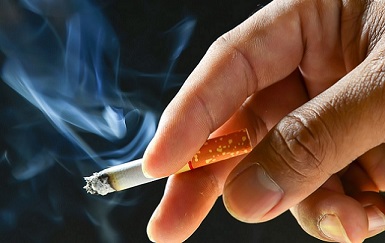NATIONAL REPORT—Tobacco and marijuana have been smoked in nonsmoking hotel guestrooms for as long as nonsmoking rooms have existed. The task of calculating the costs associated with unauthorized smoking in guestrooms is so challenging that most hoteliers have viewed smoking as a problem without a solution. Now, exhaustive primary and secondary research provides methodically sourced data detailing both obvious short-term and hidden long-term costs of unauthorized smoking. Study results reveal that unauthorized smoking costs hoteliers $5.4 billion each year.
Research Digs Deep into True Costs of Smoking
 To get a handle on all the true costs associated with smoking, FreshAir Sensor conducted a survey of more than 8,000 U.S.-based hotels in all segments of the market, from economy through luxury. Data compiled from these surveys was combined with proprietary data from FreshAir’s database of smoking across the chain scale of more than 20 million room nights.
To get a handle on all the true costs associated with smoking, FreshAir Sensor conducted a survey of more than 8,000 U.S.-based hotels in all segments of the market, from economy through luxury. Data compiled from these surveys was combined with proprietary data from FreshAir’s database of smoking across the chain scale of more than 20 million room nights.
The studies provided information on how hoteliers think about the frequency and severity of unauthorized smoking in their guestrooms, defined the processes hotels undertake to mitigate smoking and recover guestrooms, and factored in the costs associated with these processes across the hotel’s operations to calculate the true cost of smoking in hotel rooms.
In addition to the surveys, FreshAir combed through thousands of pages of public industry sources to capture verifiable data to help measure the long-term costs of unauthorized smoking. The study is the first of its kind to calculate each item methodically and systematically, so hoteliers can finally have reliable data on heretofore unquantifiable long-term costs.
The key factors detailed include:
- Damage to property. Smoking leads to an accelerated depreciation schedule for soft and even hard goods in rooms, and otherwise increases the amount of inventory kept on hand. Repeated smoking can lead to lingering odors that require the replacement of expensive items, including mattresses and carpet. Smoking also occasionally causes material loss from fire, those losses accounts for nearly $13 million in damages to hotels each year.
- Additional cleaning. Extra time and materials needed to turn over a smoked-in room adds up and delays housekeeping staff.
- Lost revenue (net of fees). Fees collected from cleaning fees can offset the costs associated with smoking. However, loss of revenue from taking rooms offline, relocating affected guests or offering discounts/services, and chargebacks all eat away at the revenue associated with cleaning fees.
- Loss of reputation/Net Promoter Score (NPS). Bad reviews and lower NPS are the most significant cost from smoking due to the negative effect on hotels’ future business. Smell/odor remains the third most cited complaint in the check-in process, which is the most important driver of NPS for hotels.
- Loss of productivity. Time spent finding rooms that are being smoked in, dealing with guests bothered by smoking, chasing down fees and fighting chargebacks reduce productivity. Additionally, exposure to both secondhand smoke (SHS) and thirdhand smoke (THS) can lead to time out of work and directly lead to more expensive healthcare premiums for the industry.
The research study findings indicated the costs of damage to property, cleaning costs, and revenue considerations, as well as loss of business due to review/reputation issues. Information is provided for all sectors, including economy, midscale, upper-midscale, upscale, upper-upscale and luxury. The study shows that the true total cost of one smoking incident ranges from more than $600 at a midscale property to about $1,000 at upper-midscale and upper-upscale properties, with an average of more than $1,100 per incident in U.S. hotels.
Unauthorized smoking is expensive for hotels but until recently it was not possible to fully quantify the costs. Hoteliers could document the short-term impacts of expensive cleaning procedures and lost room revenue but could not quantify the real culprits—long-term hidden costs of damaged goods and smoking-related loss of customer satisfaction. Poor reviews from guests associated with perceived cleanliness and lingering smoke smell affect hotel reputation, while damage to soft goods and expensive cleaning processes take an immediate financial toll.
The new research on hidden costs of smoking provides a wakeup call for hoteliers to begin preventing unauthorized smoking before it becomes a larger problem. By taking actionable steps to prevent smoking, hotels can make major strides in increasing room revenues.
Jack O’Toole is Co-founder/President of FreshAir Sensor.






